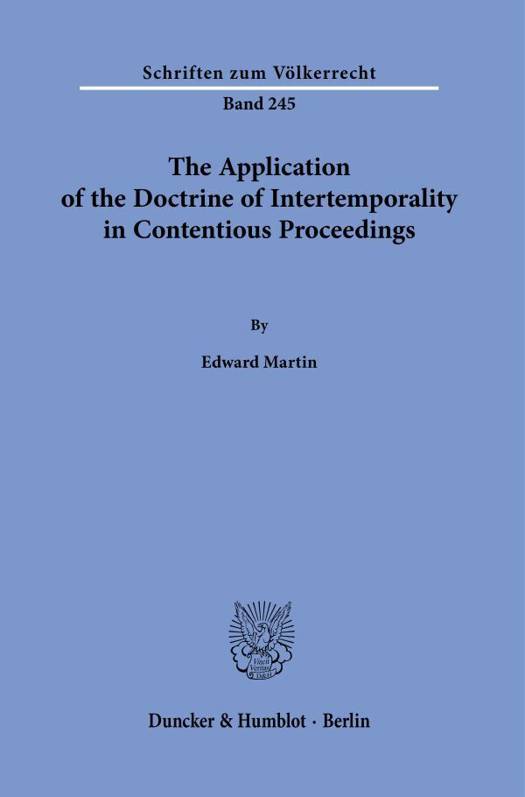
Bedankt voor het vertrouwen het afgelopen jaar! Om jou te bedanken bieden we GRATIS verzending (in België) aan op alles gedurende de hele maand januari.
- Afhalen na 1 uur in een winkel met voorraad
- In januari gratis thuislevering in België
- Ruim aanbod met 7 miljoen producten
Bedankt voor het vertrouwen het afgelopen jaar! Om jou te bedanken bieden we GRATIS verzending (in België) aan op alles gedurende de hele maand januari.
- Afhalen na 1 uur in een winkel met voorraad
- In januari gratis thuislevering in België
- Ruim aanbod met 7 miljoen producten
Zoeken
The Application of the Doctrine of Intertemporality in Contentious Proceedings
Edward Martin
€ 147,95
+ 295 punten
Omschrijving
The doctrine of intertemporality prohibits the retroactive application of norms of international law in contentious proceedings and obliges the deciding court to positively ascertain the applicable historic rules. In situations in which the historic interaction between a European and a non-European entity needs to be litigated, problems arise. International law is lacking a universally recognised methodology, particularly regarding its unwritten rules. Also, the historic non-European peoples were often relied on oral tradition and did not produce any documentary evidence of their historic legal orders. Historically, different regions of the world produced independent legal regimes. Meta law governing the interactions between entities of different regimes was non-existent since no regional order did claim global rule. Hence there were no rules governing the interactions between European and non-European entities. The applicable historic law is presently ascertained by recourse to specific European phenomena. In contentious proceedings, this methodology leads to a situation of differend a situation in which the method of solving the dispute already vindicates the position of one of the parties to the dispute.
Specificaties
Betrokkenen
- Auteur(s):
- Uitgeverij:
Inhoud
- Aantal bladzijden:
- 112
- Taal:
- Engels
- Reeks:
- Reeksnummer:
- nr. 245
Eigenschappen
- Productcode (EAN):
- 9783428181865
- Verschijningsdatum:
- 24/03/2021
- Uitvoering:
- Paperback
- Formaat:
- Trade paperback (VS)
- Afmetingen:
- 155 mm x 231 mm
- Gewicht:
- 199 g

Alleen bij Standaard Boekhandel
+ 295 punten op je klantenkaart van Standaard Boekhandel
Beoordelingen
We publiceren alleen reviews die voldoen aan de voorwaarden voor reviews. Bekijk onze voorwaarden voor reviews.









